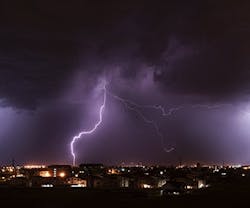Study Finds Occupants Unsure of Safety Practices in Extreme Conditions
Over half of workers say they’re expected to show up to work during extreme weather conditions such as hot temperatures, snow and ice, blizzards, earthquakes, and hurricanes, according to a survey performed by Staples. The study, which polled 400 office workers and 400 decision makers at various-sized organizations throughout the U.S., showed that almost half of workers report feeling unsafe when showing up as requested and that natural disasters have not caused their employer to reconsider safety plans.
The survey highlights the fact that more education for occupant safety during weather events is necessary, with 25% of office workers having never experienced a safety drill in the office and almost 30% reporting that they didn’t know whether or not there was a safety expert in their workplace.
The study’s authors offer three suggestions to improve occupant confidence in organizational preparedness:
- Train regularly – Make occupants aware of plans, procedures, and best practices for responding to potentially dangerous weather. Offering refresher courses is also a good idea to communicate the importance your organization places on safety.
- Communicate rapidly – Utilizing consistent, predictable methods of communication can help boost occupant confidence and also streamline your operations. Make sure occupants are aware of what channels will be used for specific types of notifications and communicate any office closures or other major changes as soon as possible.
- Focus on technology – If extreme weather is a frequent interruption where your facility is located, investing in equipment that allows employees to telecommute during an emergency can keep your business operational even when the facility is inaccessible.
Looking to ensure your facility is prepared for the worst? Check out this Guide to Developing Action Plans for different types of emergencies.
